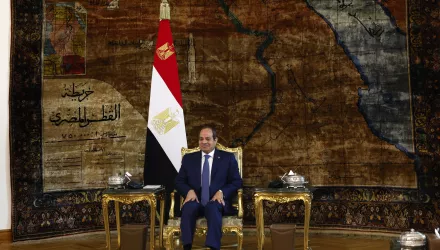This could be a critical week for Robert Mugabe, the 79-year-old president of Zimbabwe who has systematically destroyed his own country and visited misery and hunger on its citizens.
The opposition has begun a weeklong work stoppage and called a series of rolling demonstrations with one goal: to force the dictator to abdicate.
If members of the opposition can convince the army to cooperate, Africans could push Mugabe out of power and restore democracy to a pivotal nation in southern Africa.
Despite American and European sanctions, private words from South Africa and Nigeria and dangerously deteriorating economic and social conditions within Zimbabwe, Mugabe has so far refused to budge. Once the great hope for a democratic Africa, he has instead maintained autocratic control of dissent in his country for 23 years by intimidation, terror and rigged elections.
Although Mugabe's men have tortured only a few hundred opponents, and political assassinations since 1998 number only in the hundreds, fully 6 million of Zimbabwe's 12 million people face continuing hunger. And at least 1 million people are threatened in the next few months with real prospects of starvation, all thanks to widespread government corruption, the collapse of the once-prosperous economy and other direct government actions.
Moreover, from 1982 to 1984, Mugabe's soldiers killed 20,000 to 30,000 Sindebele-speaking rivals in the southwestern section of the country. Their crime then, like the millions of Zimbabweans who turned against Mugabe in 1999 and 2000, was simply opposing his dictatorship and backing another leader.
Angered by vigorous opposition to his reelection in 2002, Mugabe's regime systematically denied to suspected supporters of the opposition Movement for Democratic Change the food aid supplied by various foreign sponsors.
Rural constituencies that favor the MDC and Morgan Tsvangirai, its leader and presidential aspirant, have seen supplies of grain diverted to those who back Mugabe.
Mugabe has visited this apocalypse on his country since 1998, when he sent Zimbabwe's army into Congo to support the late President Laurent Kabila and secure access to diamond, copper and cobalt mines for himself and his associates. That venture -- which enriched him but bled his countrymen -- plus rampant corruption plunged Zimbabwe backward in every economic dimension.
A full 80% of Zimbabweans are unemployed. Inflation has risen to 230%. The local dollar, once 38 to $1, now trades at 2,500 to $1. Manufacturing and agricultural production capacities are about 38% of what they were in 2000. Many mines are closed because of the lack of machinery or spare parts.
Hospitals lack basic medicines and staff. Schools are regularly closed because the government has no money to operate them.
Two weeks ago, the government confessed that it had no funds with which to pay for the printing of the local currency.
There are widespread shortages. South Africa stopped extending credit for electric power three weeks ago; Zimbabwe's lights may soon go out.
There is no gasoline or diesel for cars or tractors; kerosene, widely used to heat small homes, is unavailable as Zimbabwe enters its coldest months.
Zimbabwe, once the brightest jewel in Africa with a balanced and flourishing economy and the best-educated citizens per capita, is now destitute. Thousands of Zimbabweans flee each week to neighboring South Africa and Botswana.
Despite a few brave judges, effective legal redress also has vanished since Mugabe in 1999 began defying Supreme Court rulings against his land grabs and the torture of journalists.
Washington and London have asked South Africa and Nigeria to intervene, so far without success.
If this week's street protests succeed in forcing out the dictator and Mugabe is hustled away to a neighboring nation, Tsvangirai will demand a new presidential election.
Victory in the streets depends, however, almost entirely on soldiers refusing to shoot. So far, Mugabe has kept his generals loyal through fear, patronage and access to corrupt opportunities.
Has Tsvangirai finally persuaded key junior officers to change sides? If the key leaders in the security forces switch from Mugabe to Tsvangirai and people power, reconstructing Zimbabwe will be easier than rebuilding Afghanistan and Iraq.
Zimbabweans can do it themselves with loans from the World Bank, the International Monetary Fund and the U.S., and with strong moral support from their neighbors, especially South Africa.
Washington's and the world's interests are best served by a strong, free democratic Zimbabwe.
Article
from
Los Angeles Times
Up Next



